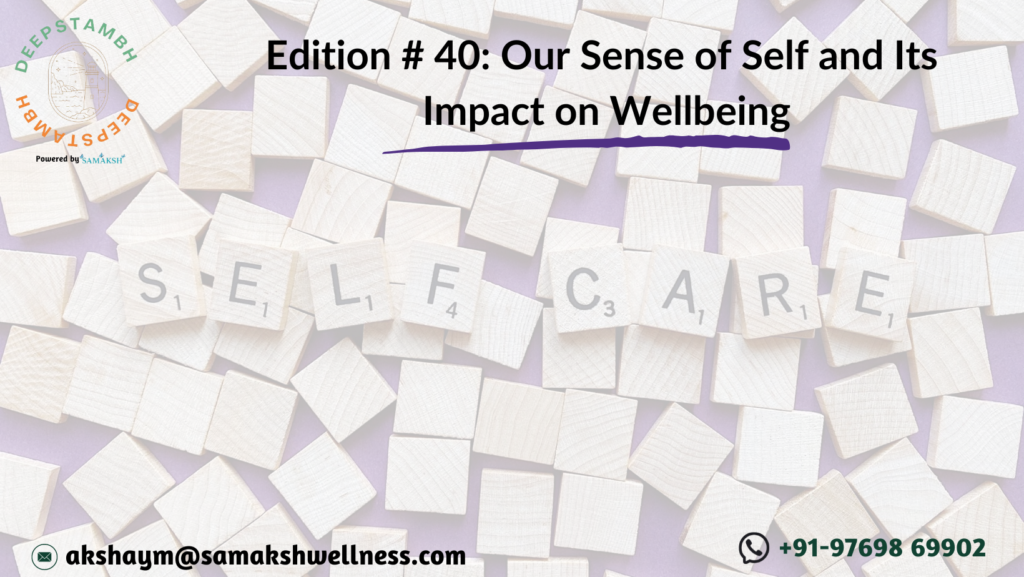Our Sense of Self and Its Impact on Wellbeing

Our sense of self is crucial to our overall well-being. How we think of ourselves determines the quality of life we live. The sense of self is a complex interplay of various factors like memory, beliefs, life experiences, and bodily sensations.
As toddlers, we observe and absorb messages and behaviors from the people around us. By the age of seven, we have established our sense of self, which continues throughout life unless we change our perception and embrace our true self. Some people develop self-confidence from childhood, which is directly linked to their environment and parental upbringing.
Parental upbringing plays a significant role in determining our sense of self. If parents are overly critical, the child may develop a low sense of self. Conversely, if parents are overly protective and pampering, the child may develop an inflated sense of self.
The sense of self, or the narrative we keep telling ourselves, determines our behavior, habits, and traits in life. It also impacts our gut health. To enjoy a healthy life, it is essential to focus not only on physical health but also on emotional and mental health. A low sense of self can alter the gut microbiome, which plays a crucial role in digestion and overall health (leading to bloating and other digestive issues). Poor emotional well-being can negatively impact gut health, potentially leading to digestive discomfort and disorders.
Being overly critical of oneself and one’s performance at work is a sign of a low sense of self (aka low self-esteem). This can lead to constant comparison with others, and being critical of appearance, speech, and actions. In such cases, the focus on looking good and healthy may overshadow the self-confidence needed to be your true self.
Signs of a Low Sense of Self:
- Constantly doubting your performance
- Seeking external validation
- Giving more importance to how others perceive you.
- Digestive issues
- Bloating
- Fear of being judged.
- Constant feeling of not being good enough
- Mood swings and emotional ups and downs
Steps to Improve Your Sense of Self:
- Breathe and accept yourself for who and what you are.
- Reflect on your strengths, weaknesses, achievements, and failures. Self-awareness will enhance your sense of self and help you control the intensity of your emotions.
- Decode and connect to your emotions, healthily expressing yourself.
- Let go of your fears and move ahead in life alongside them.
- Allow yourself to fail and make mistakes; learn and grow.
- Be mindful of what you eat—consume food that aligns with your body’s constitution.
- Restrict your intake of alcohol—too much can hamper your system.
- Be compassionate towards yourself and believe in your capabilities.
Enhancing your self-esteem may be challenging, but rewiring your mindset requires patience and perseverance. Follow these steps regularly and make an effort to feel good about yourself. Remember, it is not about impressing people; it is about inspiring them and inspiring yourself to keep moving forward on your life’s path.
Your life’s story is a result of what you think about yourself. Reflect on the narrative you have been telling yourself and take charge of your life to rewrite your story!
Note: I help people reflect on their narrative and enable them to rewrite their story through emotional wellbeing assessments and my 1:1 and group programs (mainly SWAYAM: From Chaos to Clarity and KAHAANI: What’s Your Story). Reach out to me at +91-97698 69902 to learn more.

Add Comment